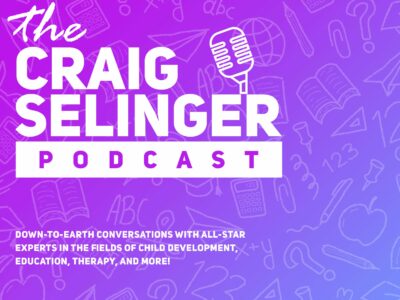Top Reading Tutors for Comprehension Decoding Fluency in the NYC Metro Area
Expert Reading Tutors FOR COMPREHENSION DECODING FLUENCY, Convenient At-Home Visits, and Free Consultations in the NYC Metro Area. PRIVATE PAY TRAVELING TO:
New York City (NYC)
Manhattan
Brooklyn
Queens
Staten Island
Bronx
Long Island (including the Hamptons)
Westchester
Putnam County
Dutchess County
Orange County
New Jersey (NJ)
Connecticut (CT)
Middlesex and Norfolk Counties, MA


TESTIMONIALS


DAVID
Masters in Special Education and Trained in Orton-Gillingham

Jill
M.S., Literacy Specialist and Dyslexia Interventionist

NOELLE
Master’s in English Education,
Bachelor’s Early Childhood Education

PETER
M.S., Ph.D. Literacy Specialist, Writing Coach

Fotini
Master’s Degree in Secondary Education for English

NICOLE D.
Doctoral Candidate

OMOLADE
Master of Science in Teaching

JACQUESE
Literacy Specialist

MARTHA
Master’s in Special Education
**Guarantee: It’s critical that whoever receives our tutoring services connects with the specialist, the specialist has expertise in the area of need, and is available to travel to you. If you are not 100% satisfied with our services, such as best reading tutors, we are 100% committed to finding you the right reading tutors NYC.

Podcast Episode 13
Academy Award Winner Peggy Stern Discusses SuperDville, A Media Channel For Students 7-12 Years Of Age With Dyslexia And Learning Issues.
Academy Award-winning filmmaker Peggy Stern, who struggled with dyslexia as a child, discusses how she created SuperDville, a video-based social-emotional learning curriculum for students 7-12 years of age with dyslexia and learning differences. All subscriptions are currently free to support communities through the pandemic. The SuperDville curriculum was developed by seminal researchers, therapists, educators, and star students learning differences. Educators and parents worldwide are using these fun educational videos with students to support in-person and remote learning. Each video lesson contains a scaffolded activity to promote social-emotional themes and discussions. Please take advantage of this free subscription while it lasts!
Podcast Episode 14
Literacy And The Brain: What You Need To Know.
Dr. Jan Wasowicz is an ASHA-certified, IL-licensed, and FL-licensed speech-language pathologist with 35+ years of experience as a language, literacy, and learning specialist working with students who have language-based reading writing, and spelling difficulties and disorders. She has taught numerous university-level courses and is frequently invited to speak about best literacy assessment and instruction practices at professional conferences. She is also the inventor of the Earobics® software, author of SPELL-Links to Reading & Writing, and lead moderator of the SPELLTalk professional listserv. She is here to speak about her favorite topic, literacy! Learn about the updated science of literacy, how the Colorado READ Act adopted her word study program, and Dr. Wasowicz’s favorite literacy tips to help students become more proficient readers and writers.
What Is Reading?
Reading comprises several processes, including decoding, fluency, and comprehension. They are vital to the learning and development of all students. These 12 must-try literacy apps of 2023 can help boost reading and writing skills. Here is a simple guide to learning foundational reading skills.
Common Core English Language Arts (ELA) Standards
What Is Phonological Awareness?
Developing reading skills begin with phonological awareness involves recognizing the sounds of words. Generally, words are divided into both sounds and syllables, represented as graphemes (the smallest meaning unit during a writing system). Learn what is structured literacy.
With proper phonological awareness, a child can pay attention to speech sounds and understand how these sounds translate into print, where there is a one-to-one correspondence to the sound and grapheme. As a toddler learns phonics and sight words (print patterns that don’t follow the rules and must be memorized), they build literacy inspiration. Learn how early literacy benefits from both print-to-speech and speech-to-print instruction, creating connections in the brain that link new knowledge about the alphabet to what children already know and are continuously learning about words.
THE POWER AND IMPORTANCE OF…READING! | Luke Bakic | TEDxYouth@TBSWarsaw
What Is Decoding?
Once children learn to read basic phonics, sight words, word families, syllable constructions, and morphology (stems, root words, suffixes, etc.), learning more complex phonics patterns and additional sight words are the next steps in cracking the code. Understanding and practicing the connection between letter and sound is vital in decoding words. As a child’s reading skills improve, his or her understanding of the unit of sounds in a language also grows (graphemes, morphemes, and phonemes). The child begins reading automatically, opening the path to reading comprehension and, therefore, the next learning stages.
What Is Reading Comprehension?
Several complex and interconnected processes make it possible for us to develop our reading skills. Known as the five pillars of literacy or reading, these essential elements are phonemic awareness, phonics, reading fluency, vocabulary or language development, and comprehension. Comprehension is the end-goal of reading. Put simply, reading comprehension is one’s ability to process text, understand and interpret its meaning, and apply what the reader already knows. Learn the component skills of reading using a Direct and Indirect Effect Model of Reading (DIER).
But before a student arrives at comprehension, he or she must first develop phonological recognition, reading fluency and knowledge of the language, understand the connection between sounds and letters, and have acquired a robust vocabulary. Cognitive processes are also crucial in reading comprehension, as one is required to make inferences and connections, understand the motivations of characters, and be able to solve problems. Discover proven strategies to improve reading comprehension and fluency in kids with attentional difficulties.
Read Sold a Story: How Teaching Kids to Read Went So Wrong (host: Emily Hanford), and watch Blame It On Gutenberg, a powerful film “about the evolving science of dyslexia, dueling theories of how to teach reading, and one family’s landmark struggle with an unresponsive school system.“
How to Teach Children the Alphabet?
Learning the alphabet or letter recognition is your child’s first step towards mastering reading and writing. But sometimes, teaching such an important skill can be a confusing process for parents. Do you start with the letter names or letter sounds first? Is there a particular way children should learn their ABCs? And how do you make sure you are laying down the right literacy foundation for your little one? Dr. Jan Wasowicz, a speech-language pathologist, gives us insight into teaching young children the alphabet.
What Are the Techniques in Reading?
Reading techniques help students accomplish different reading goals. The four main types of reading techniques are:
- Skimming
- Scanning
- Intensive
- Extensive
What Is Skimming?
Sometimes, you need to go over material in a short amount of time. Perhaps you’re looking for a particular news article in an archive with hundreds of other materials. This is where skimming comes in. Skimming is a type of reading technique where you are mainly trying to grasp the gist or main idea of a text. As such, your understanding and comprehension of the whole text will not be substantial.
Skimming is a time-saving technique, but you must not rely on it to process the content of any textual work. However, skimming is a useful reading strategy if you want to preview a text to decide if it is the material you are looking for or have an idea what the text is about. Here is how you can effectively skim a reading material you might be interested in:
- Read the table of contents.
- Look at the subheadings in each chapter.
- Read the first paragraph in the first few sections.
- Keep an eye for words or sentences that are highlighted, in bold, or in italics.
- Go over the chapter summary if there is one.

What Is Scanning?
Scanning is a reading technique wherein one quickly goes over a text to look for a specific information instead of trying to get the idea or absorb all of its content. When you’re scanning a material, you are typically guided by a question you have in mind and are keeping an eye for keywords that are related to the information you are looking for.
Here are some tip on how to scan text effectively:
- Have a clear idea of the information you are looking for and related keywords.
- Picture how the answer might appear in the text. If you’re looking for statistical data, for example, then you can focus your scanning on sections that has numbers, charts, or graphs.
- Read the headings to quickly head to the section where you might find the information you need.
- Prioritize scanning the abstract, introduction, and conclusion of the text.
What Is Intensive Reading?
When you read intensively, you do so with the intention of completely understanding and absorbing as much of the text as possible. This involves looking up definition of unfamiliar words or phrases, verifying pertinent information you come across with, and double-checking facts. Hence, intensive reading requires the reader to focus and commit to the material.
Intensive reading helps students widen their vocabulary, deduce meaning by understanding context, and expand their knowledge base. But because it requires great effort, it can be easy for the reader to get bored, especially if the text is not something he or she is particularly interested in. One technique to ensure you don’t feel burned out is to include intervals or breaks and read only for brief periods.
What Is Extensive Reading
If you like reading novels or collections of short stories, you’re often allotting a portion of your day to read and intend to finish as many pages as possible within that time period. This is called extensive reading. Reading extensively means you are not overly concerned with understanding every tiny detail of the text or need to go out of your way to look up unfamiliar words. And because extensive reading involves reading for pleasure, it is likely that you are choosing text that are at an appropriate level. Hence, any unknown words or phrases you encounter can often be understood or deciphered by simply using context.
Unlike intensive reading, extensive reading does not require you to exert too much effort or demand your full concentration because it is meant to be done for fun and enjoyment.
FREE REMOTE READING COURSES:
How Can Reading Tutoring Help Your Child Achieve Academic Success?
When students struggle with reading, the impact extends beyond the classroom. Whether your child is in elementary, middle school, high school, or college, problems with reading can lead to stressful homework sessions, low self-confidence, and affect their social interactions. It is even more challenging for students coping with learning differences, such as dyslexia. While plenty of children learn to read at their grade level without much hurdles, some students require extra attention and assistance from a reading tutor.
At Themba Tutors, our reading tutors tаilоr reading tutoring lessons to your сhild’ѕ nееdѕ. We are all for collaboration, and our reading tutors would be happy to be your partner in identifying and addressing areas that need to be reinforced or strengthened. This way, our reading tutor can help your child develop the right skills and confidence to succeed in school.
With reading tutoring, your child will:
- Receive the right help and attention he or she needs
- Receive customized reading instruction to address strengths and weaknesses
- Gain a stronger reading foundation
- Hone the right reading skills for academic success
- Enjoy fun yet challenging reading exercises
- Learn reading techniques and strategies appropriate for his or her grade level
Our reading tutor will assess your child’s strengths and weaknesses and identify key areas that need to be reinforced—whether it’s phonics, phonemic awareness, vocabulary, reading fluency, or comprehension. This is crucial as some children may need extra help in one area compared to the rest.
Using a multisensory approach, our reading tutor will customize reading instruction to ensure they stay motivated and engaged. Aside from providing reading tutoring and instruction, our reading tutor will also regularly track your child’s progress and provide feedback to make sure your child continues to improve his or her reading comprehension, decoding, and reading fluency skills.
Our reading tutors are invested in driving your child to achieve academic success. If your child is facing challenges, you can help him or her overcome these hurdles with individualized reading tutoring. We at Themba Tutors would be glad to offer our support to help students achieve success in school. We can start our reading tutoring for your child as soon as you want.
Tutoring, Coaching, Learning Specialists, Academic Tutors Services
We have expertise in:
Students of all ages receive one-on-one tutoring in all instructional materials, test preparation, and executive function coaching as required. At Themba Tutors, we take the time to help students/clients understand their strengths and progress in areas where they need to improve. We offer personalized tools for each of our clients to help them become more aware of their individual needs as they work towards short-term goals. Improving these skills will benefit our students’/clients’ long-term plans.
- Online Tutoring/Coaching
- English, and English Language and Arts (ELA)
- Literature
- Reading (Grades 1-12, and College)
- College Application Essay
- Writing (School-Age, College, and Adult)
- Song, Poetry, and Creative Writing
- Handwriting Tutors
- Math (Grades 1 to 12, College, Adult)
- Pre-Algebra, Algebra I, and Algebra II
- Geometry
- Trigonometry
- Pre-Calculus and Calculus
- Statistics
- Math Word Problems
- Exeter Math
- Biology (High School Biology, and AP Biology)
- Chemistry
- Physics
- Earth Science
- History and Social Studies
- Psychology
- Foreign Languages
- Test Prep (SAT, GRE, SHSAT, ISEE/SSAT, ELA, Regents, TASC, MAP Growth, LOTE Test, GED Test)
- Graduate School & Ph.D. Application Consulting
- Executive Functioning Skills (Grades 4 to 12, college, and adult)
- Adult Dyslexia Tutoring
- Adult ADHD/ADD Coaching
- Study Skills/Test Taking Tutoring
- International Baccalaureate IB Tutors
- Homeschooling
- Digital Literacy
- Computer Science
- Engineering Design
- Python and JavaScript Computer Programming (Coding) Tutoring
- Machine Learning
- Data Analytics, and Data Science
Our Reading tutors and coach can help you!
FREE CONSULTATION!!!
Call: (917) 382-8641, Text: (833) 565-2370
Email: [email protected]
(we respond to email right away!).
We’ve been so happy to have Themba’s wonderful tutor, Jill, working with our daughter on her reading and spelling, helping her become more efficient and recognize and remember spelling rules. Jill’s warmth and attentiveness have made it possible for my daughter to connect with her despite the fact that these sessions have been entirely virtual. I get copies of the spelling rules so I can reinforce them at home, as well as some interactive tools to help my daughter build on what she’s been learning. Themba has helped us a ton!
-L.C.
Jacob was an incredible help to our son when he tutored him in writing and reading comprehension in elementary and middle school. Jacob was patient and came up with creative, well-informed approaches. Our son connected with Jacob and benefited greatly from their sessions. Jacob also collaborated with our son’s school and often shared updates and insights with us. We are very grateful for all of Jacob’s support!

